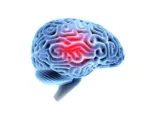Decoding the Impact: How Xanax Affects the Brain

Widely prescribed for anxiety, Xanax is a medication that influences the brain’s intricate chemistry. This blog aims to unravel the mysteries surrounding how Xanax affects the brain, exploring the specific areas impacted and addressing concerns about potential damage and the notorious “Xanax brain fog.”
How does Xanax affect the brain?
Xanax operates by enhancing the activity of gamma-aminobutyric acid (GABA), a neurotransmitter that inhibits brain activity. This modulation creates a calming effect on the central nervous system, alleviating anxiety and promoting relaxation.
Xanax’s potency lies in its quick onset of action. It rapidly crosses the blood-brain barrier, allowing users to experience relief from anxiety within a short time frame. This rapid action is attributed to the drug’s ability to bind to specific receptors in the brain.
What part of the brain does Xanax affect?
Xanax predominantly affects the limbic system, a complex network of structures involved in emotions and memory. By modulating GABA activity in this region, Xanax can dampen the heightened emotional responses associated with anxiety and stress.
The amygdala, a key component of the limbic system, plays a crucial role in processing emotions, particularly fear and anxiety. Xanax acts to reduce the hyperactivity of the amygdala, contributing to its anxiolytic effects.
Can Xanax damage your brain?
Prolonged use of Xanax has been associated with cognitive impairment. Some studies suggest that chronic benzodiazepine use, including Xanax, may lead to issues with memory, attention and concentration. However, further research is required to understand the extent of cognitive damage.
While Xanax itself may not cause direct structural damage to the brain, its potential for dependence and withdrawal can pose challenges. Abrupt cessation of Xanax can result in withdrawal symptoms, including increased anxiety, insomnia and, in severe cases, seizures. These symptoms underscore the importance of gradual tapering under medical supervision.
Xanax brain fog: myth or reality?
Many Xanax users report a phenomenon colloquially known as “Xanax brain fog.” This subjective experience is characterized by a sense of mental haziness, difficulty concentrating and impaired cognitive function. While anecdotal, these reports highlight the need for further research into the cognitive effects of Xanax.
The occurrence of “Xanax brain fog” may vary among individuals. The severity of this symptom seems to be influenced by numerous factors, including dosage, frequency of use and overall health. When considering long-term Xanax use, balancing the benefits of anxiety relief with potential cognitive side effects is a major factor.
Get help today
Understanding how Xanax affects the brain involves unraveling its influence on neurotransmitters, specific brain regions and potential cognitive consequences. While Xanax provides valuable relief for those struggling with anxiety, the risks associated with long-term use and the potential for cognitive impairment should be carefully considered.
This knowledge empowers individuals and healthcare professionals to make informed decisions about the use of Xanax, weighing its benefits against potential drawbacks. Ongoing research is essential to further illuminate the intricacies of Xanax’s impact on the brain and guide responsible prescribing practices for optimal mental health outcomes.
If you or a loved one is suffering from a Xanax addiction reach out to our team at Silver Ridge Recovery to get the help you need and deserve today.









